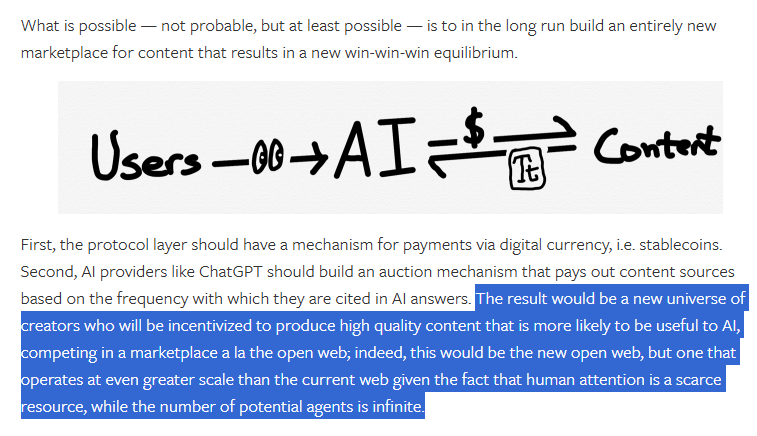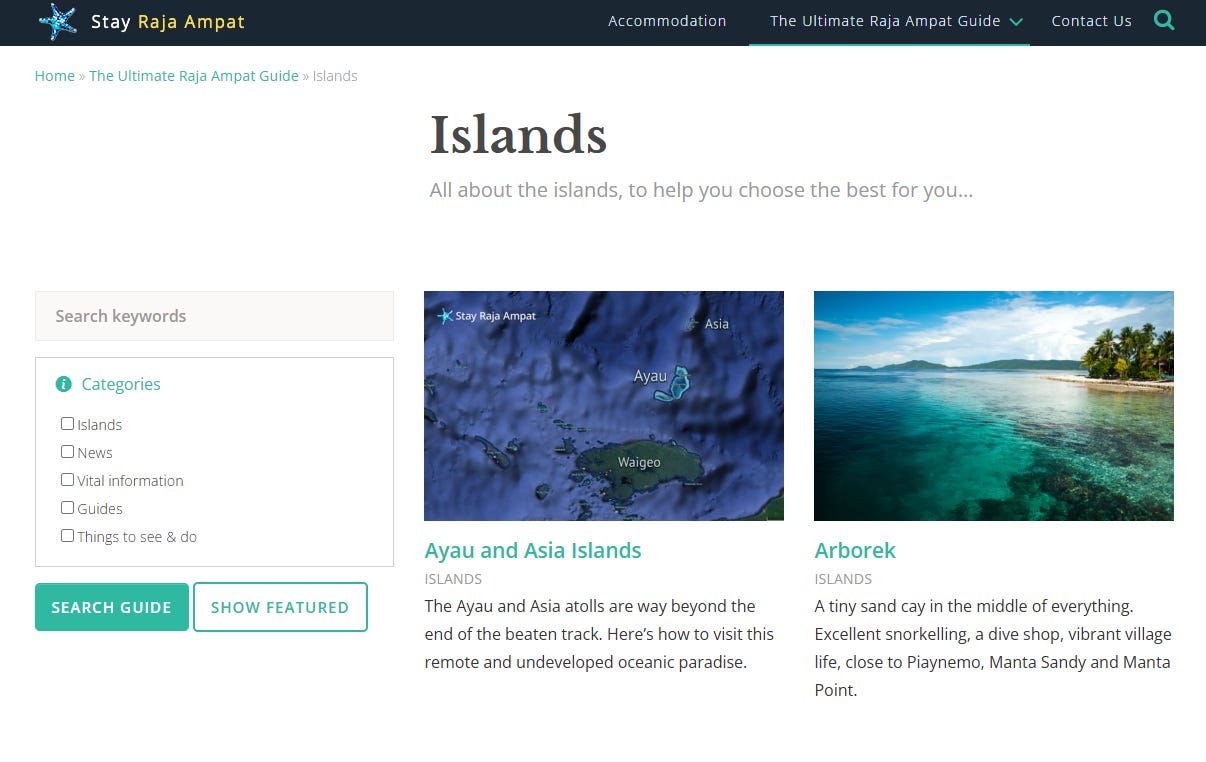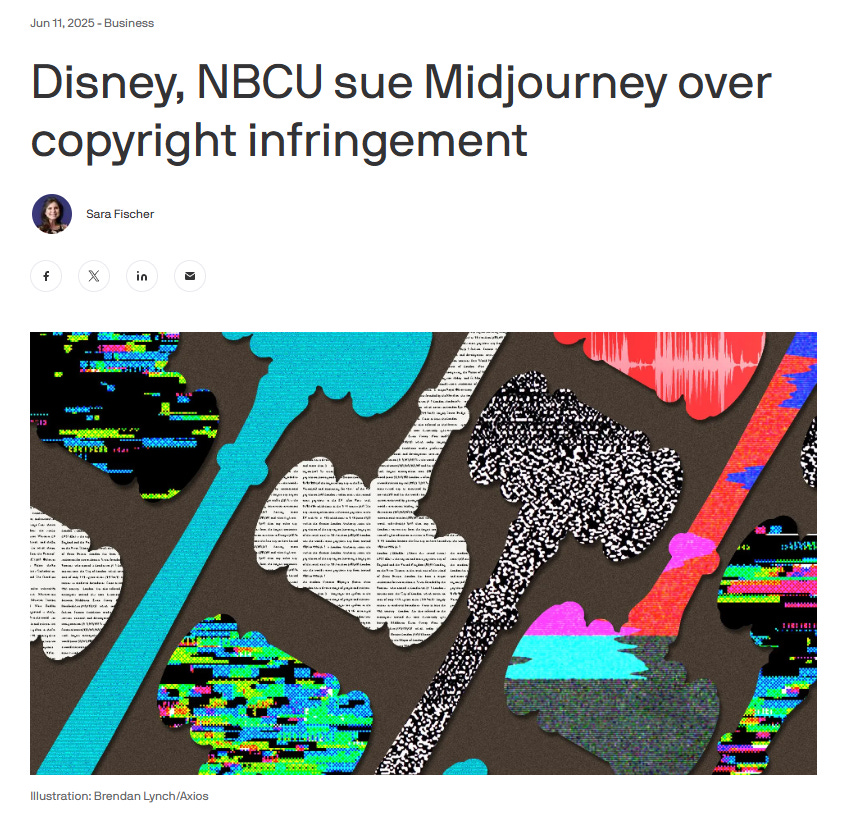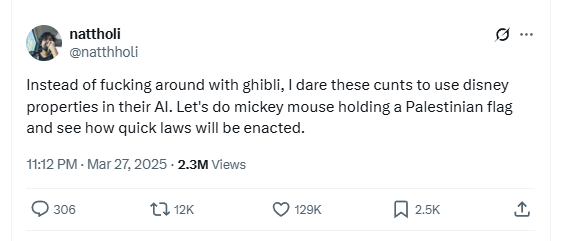The new web's new incentives
And lots of great reads for you
I know that title is grand - and TBH after writing the article I wasn’t very convinced about it, but I’m hoping you’ll forgive that. Anyway, off we go.
Things of Internet is a newsletter operating at the intersection of marketing, technology, culture and humanity. I’m Deepak aka Chuck, and I straddle marketing, content creation, creator coching, a varied content diet, and overthinking of all the above.
A lot of how the new web will go - indeed, most things controlled by humans - can be determined by incentives. In most cases, that incentive is money. (At a more fundamental human level, that incentive would be propagation or just happiness, but this isn’t the Substack for that… yet).
The state of the web today - the good and bad parts - is the results of incentives.
The cesspool that modern social media has become is because rage leads to more views leads to more ad space leads to more profit.
Those bemoaning the deteriorating quality of Google Search results can blame the second order effects of an online economy spawned by said behemoth - one in which ad revenue is tied to page views, leading to SEO practices, meaning substandard copy-pasted content everywhere.
And of course, those who search for recipes online constantly lament about having to navigate through reams of the author’s life story or whatever before getting to the actual recipe - which itself is structured in a way to make you go up and down the page constantly. If your guess is more ad impressions, page action metrics, etc - bingo.
Like I said - in most cases, that incentive is money.
It makes me think about how the web will evolve in an agentic era - the fancy word to denote a web where we outsource tasks to chatbots (agents) rather than search up things ourselves. Anyone who uses ChatGPT for travel recommendations or a customised recipe already is participating in the agentic web. And as more apps eventually, inevitably link themselves to primary agentic interface - be it ChatGPT or Gemini or an eventually improved Siri - it’s more and more likely we will bypass a “wall of links” or series of app screens, and defer to an averaged, seemingly-good answer from a chatbot for most things. It is but the natural evolution of the web - 20 years back it seemed advanced that all the links / information would come to us in one place, now it’s only logical that we get an abstracted answer of all those links. It’s imperfect (as Google Search even at its best surely was), but efficient, and mostly correct. Mostly.
So when I saw that Ben Thompson had an essay on this topic, I knew I needed to devote a good 30 minutes and mindspace to it, and I was not disappointed. Especially this paragraph:
What struck me as interesting is that the current commentary around content in a GenAI age is ‘slop’ - unoriginal (or clickbaity) content created en masse to keep people addicted to screens… yada yada incentives, yada yada profit. But what Thompson argues here - maybe optimistically - is that higher quality content will compete to be featured by LLMs in their answers. And that to me is super interesting, because it opens up a whole new set of approaches for content success on the web. Specifically…
Style would matter less than actual expertise and depth.
If I am an expert in a particular topic - say, homestays in the remote Indonesian diving paradise of Raja Ampat - I would channel all my energies into making sure I have correct, updated information, and difficult-to-source information and put it all up on a website.
It’s relatively difficult for a competitor - say, a global travel agency which just has a content team based out of a large city - to provide competing content. Yes, sure, they can replicate this content, but it’ll never be as authentic and ears-on-ground.
The points I am trying to make is:
Yes, I hope to be diving in one of the world’s best scuba destinations next year
This is gold for an LLM that just needs raw facts. Updated, correct and infinitely malleable to the style determined by the prompter. A site like this - if it adopts the stablecoin future that Thompson lays out - stands to win in the new LLM-based era. In other words - expertise and real information wins. Again, this is an optimistic view, and there’s no guarantee that some evolution of SEO will sully LLM search results, but hopefully those pitfalls can be avoided because of the incentive of subscriber money.
Even more optimistically - it will mean that more people come up with (and document) better research, original thought, inferences, hypotheses and more - even if the end result is to feed an LLM. In many ways, not too different from researchers doing hard work for, say, Encyclopedia Britannica.
… Unless style is what you want to lead with and build your brand around!
Possibly controversial statement - I think PG Wodehouse’s stories are mediocre. They’re repetitive and predictable. But just like one (mostly) doesn’t read Playboy for the articles, one doesn’t read Wodehouse for the plot. Plum is one of my favourite authors because of his prose, vocabulary and how delightful he can make the ordinary seem. He is a perfect non-internet example of someone whose style is the selling point. I am sure that you can think of many content creators who fit this analogy, and not even in a pejorative way.
Style (or other irrational things like belief) is a compelling reason to people to watch, listen or read you.
If what I’ve written so far seems interesting to you… or at the very least you’d like some opinion from someone with actual expertise, I highly recommend you listen to this Verge podcast that Nilay Patel did with Microsoft CTO Kevin Scott, who talks about the new web protocol (MCP) that Microsoft is espousing. It’s not as geeky as you may think from a conversation that uses both ‘agentic’ and ‘MCP’ terms liberally.
In it, Nilay draws a comparison of the new web, along with what exists right now. Where website creators put in content, then a whole bunch of schema (basically, SEO text) that help virtually raise hands when a Google query comes in. It’s an excellent addition to Thompson’s above piece.
Currently - what is certainly a transition era of some sort the web - websites serve two audiences. Direct visitors, and LLMs. This is not going to last for too long.
There are going to be destinations that people choose - either because of style, ideology, whatever.
And there are going to be ‘data sources’ that feed chatbots in an increasingly agentic web.
Website owners (maybe all creators!) will need to choose where they want to play.
For example, suppose I had a great insight about how the future of the web is going to look like in an era dominated by ChatGPT and Gemini. I could put out a bulletpointed piece, optimised for LLMS, adding the schema that Nilay Patel spoke about.
On the other hand - I may choose to amp up the personality, adding random references to my scuba diving fantasies, cat pics, bad jokes, etc and hope to build a deeper connection with actual human readers. Or do it in verse. Or be Wodehousian. You know, optimising for prose. (I’d like to think Simblified, my first podcast, was a good example of that - while we hoped people would take a nugget or two of wisdom away, over time we realised they were really coming for the banter and ‘comfort’ of listening to 4 friends make jokes).
I am not saying that a combination of the two approaches isn’t possible, but it is tough!
Several other questions emerge.
How would payment be done to a creator for pure information, a hypotheses, an opinion, or an inference? Would they have different payment structures? Who arbitrates what is what?
Will the Spotify problem translate here? I am paying GPT only $20 a month - how does this get divided among the various content sources? Will I eventually get charged proportionately?
I think all these will lead to new problems, new questions, new solutions, new structures. One thing though is for certain - the SEO-oriented web of pre-2022 and our long-enmeshed browsing habits will change. As the web does.
Again, I do realise that Thompson’s observation / solution is a very optimistic, even idealistic one. It’s difficult to assume this is the way things will be, while there’s prevalent AI slop, reports of plummeting traffic to credible news outlets, and several opinions by smart people about AI being a deathknell for creativity.
Still, I feel it’s important to consider all possibilities and imagined futures - and using blockchain tech to solve one of the internet’s most pressing incentives issues - no matter how outlandish that might seem - is worth a read IMO.
What a time to be an observer of it all.
Some good reads
Casey Newton reviews WWDC. Continuing the narrative that Apple not just seems behind in the AI race but really has no idea what to do.
Sam Altman’s overly optimistic post about the promise of AI. And one of many rebuttals.
Zero-click hacks are here. Thanks, AI!
CEOs are using AI avatars of themselves to extend their own time (didn’t think the multiverse would start with LinkedIn, but what do I know). I mean, this is anyway likely to happen…
Karthik S’s measured post on the reasoning capabilities of LLMs.
Silicon Valley's not crying for Musk, after his bromance fallout with Trump.
A good read about cinema in the age of Veo3 - abstracting upwards to my pet topic, culture x technology.
Best non-tech read of the week
A new section I’m going to introduce!
Darwin Was a Slacker and You Should Be Too
A wonderful longread from Nautilus, fast becoming a favourite subscription. An excerpt:
Ray Bradbury began writing seriously in 1932 and wrote 1,000 words a day. “For ten years I wrote at least one short story a week,” he recalled, but they never quite came together. Finally, in 1942, he wrote “The Lake.” Years later he still remembered the moment.
“Ten years of doing everything wrong suddenly became the right idea, the right scene, the right characters, the right day, the right creative time. I wrote the story sitting outside, with my typewriter, on the lawn. At the end of an hour the story was finished, the hair on the back of my neck was standing up, and I was in tears. I knew I had written the first really good story of my life.”
Aha!
This week:
Which reminded me of this epic tweet during the height of the Ghibli meme craze:
Made me think
In a Masters of Scale podcast episode, Frank Patterson (CEO of legendary production house Trilith Studios) shared the mantra that guides his craft: “I’m a good audience”. This, after admitting he wasn’t ‘technically’ great.
I liked that. I’ve often tried to think that way about my own work in marketing and consulting. I feel too much of the industry fluffs itself up with frameworks and PPTs and “that’s the way it was done” rather than think about the end consumer. When I was teaching social media marketing, I would often tell students - the acid test for your idea is whether YOU would engage with it if it showed up on your feed.
Good to know that thinking is in good company!
See you next week with more things and thoughts from the internet!
Chuck






